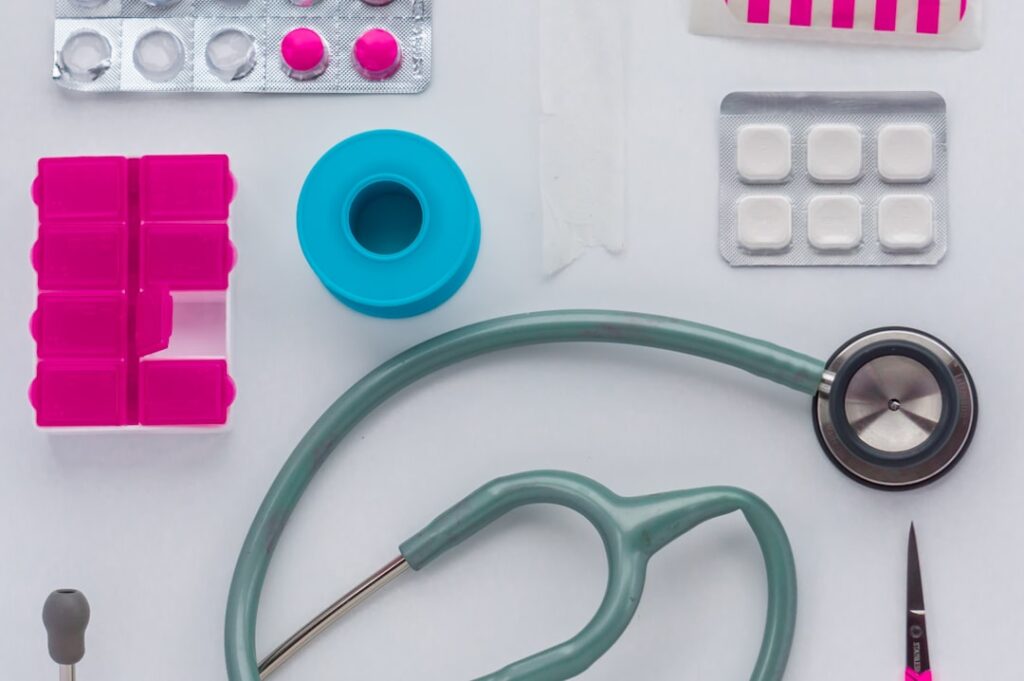ER Nurse Interview Questions: Showcase Your Critical Thinking Skills

When preparing for an interview for the role of an ER nurse, it is important to understand the specific responsibilities and challenges that come with this position. ER nurses are often the first point of contact for patients in critical condition, and they must be able to think quickly and make decisions under pressure. In the interview, you can expect to be asked about your ability to handle high-stress situations, your experience with triage and prioritizing patient care, and your knowledge of emergency medical procedures.
Additionally, ER nurses must be able to work effectively in a fast-paced and unpredictable environment. Interviewers may ask about your ability to work as part of a team, your flexibility and adaptability, and your communication skills. It is also important to demonstrate your understanding of the importance of empathy and compassion in providing care to patients and their families during times of crisis. Overall, the interview process for an ER nurse position will likely focus on assessing your ability to think quickly, work effectively under pressure, and provide high-quality care in a fast-paced environment.
In the interview, it is important to showcase your experience and skills in emergency nursing, as well as your ability to remain calm and focused in high-stress situations. Be prepared to discuss specific examples of times when you have successfully handled emergency situations, collaborated with a team to provide care, and demonstrated empathy and compassion towards patients. Additionally, be ready to discuss your knowledge of emergency medical procedures and protocols, as well as your ability to prioritize patient care based on the severity of their condition. By demonstrating your understanding of the unique challenges and responsibilities of an ER nurse, you can show potential employers that you are well-prepared for the demands of the role.
Key Takeaways
- Understanding the role of an ER nurse is crucial for a successful interview, be prepared to discuss the fast-paced and high-pressure environment of the emergency room.
- Demonstrating critical thinking skills in a healthcare interview is essential, showcase your ability to make quick and effective decisions in a medical setting.
- Transferring medical interview skills to a nursing interview involves highlighting your knowledge of patient care and medical procedures, as well as your ability to work in a team.
- Utilizing education interview techniques in a nursing setting can help you showcase your ability to educate patients and their families about their medical conditions and treatment plans.
- Showcasing teaching skills in a nursing interview is important, be prepared to discuss how you educate and train other healthcare professionals in your role as a nurse.
Demonstrating Critical Thinking Skills in a Healthcare Interview
Critical thinking skills are essential for healthcare professionals, especially in fast-paced and high-pressure environments such as the emergency room. During a healthcare interview, employers will be looking for evidence of your ability to think critically and make sound decisions in challenging situations. You may be asked to provide examples of times when you have used critical thinking to assess a patient’s condition, identify potential risks, and develop effective treatment plans.
In addition to demonstrating your ability to think critically in clinical situations, it is important to show that you can apply critical thinking skills to problem-solving and decision-making in a healthcare setting. Employers may ask about your approach to resolving conflicts with colleagues, addressing patient concerns, or managing unexpected challenges in patient care. By providing specific examples of times when you have used critical thinking to navigate complex situations and make informed decisions, you can showcase your ability to excel in a healthcare environment.
During the interview, be prepared to discuss specific examples of times when you have used critical thinking skills to assess patient conditions, identify potential risks, and develop effective treatment plans. Additionally, be ready to provide examples of how you have applied critical thinking to problem-solving and decision-making in a healthcare setting. By demonstrating your ability to think critically and make sound decisions in challenging situations, you can show potential employers that you are well-equipped to excel as a healthcare professional.
Transferring Medical Interview Skills to a Nursing Interview
As a healthcare professional with a background in medicine, transitioning to a nursing role may require you to adapt your interview skills to align with the specific demands of nursing practice. In a nursing interview, employers will be looking for evidence of your clinical expertise, patient-centered approach, and ability to work effectively as part of a multidisciplinary team. You may be asked about your experience with patient assessment, care planning, and medication administration, as well as your understanding of nursing ethics and professional standards.
In addition to showcasing your clinical skills and knowledge, it is important to demonstrate your commitment to providing holistic care and advocating for patients’ needs. Employers may ask about your approach to patient education, communication with patients and their families, and collaboration with other healthcare professionals. By highlighting your ability to provide compassionate and comprehensive care, you can show potential employers that you are well-prepared for a nursing role.
During the interview, be prepared to discuss specific examples of times when you have provided patient-centered care, collaborated with other healthcare professionals, and advocated for patients’ needs. Additionally, be ready to demonstrate your understanding of nursing ethics and professional standards, as well as your commitment to ongoing professional development. By showcasing your clinical expertise, patient-centered approach, and commitment to holistic care, you can position yourself as a strong candidate for a nursing role.
Utilizing Education Interview Techniques in a Nursing Setting
For healthcare professionals with experience in education, transitioning to a nursing role may require you to adapt your interview techniques to align with the specific demands of nursing practice. In a nursing interview, employers will be looking for evidence of your clinical expertise, patient-centered approach, and ability to provide education and support to patients and their families. You may be asked about your experience with patient education, health promotion, and disease prevention, as well as your understanding of teaching strategies and learning styles.
In addition to showcasing your clinical skills and knowledge, it is important to demonstrate your ability to communicate complex medical information in a clear and accessible manner. Employers may ask about your approach to patient education, communication with patients and their families, and collaboration with other healthcare professionals. By highlighting your ability to provide education and support as part of holistic care, you can show potential employers that you are well-prepared for a nursing role.
During the interview, be prepared to discuss specific examples of times when you have provided patient education and support, collaborated with other healthcare professionals to promote health and prevent disease, and adapted teaching strategies to meet the needs of diverse learners. Additionally, be ready to demonstrate your understanding of nursing ethics and professional standards related to patient education. By showcasing your clinical expertise, patient-centered approach, and ability to provide education and support as part of holistic care, you can position yourself as a strong candidate for a nursing role.
Showcasing Teaching Skills in a Nursing Interview
In a nursing interview, it is important to showcase your teaching skills as they are essential for providing education and support to patients and their families. Employers will be looking for evidence of your ability to communicate complex medical information in a clear and accessible manner, adapt teaching strategies to meet the needs of diverse learners, and collaborate with other healthcare professionals to promote health and prevent disease.
During the interview, be prepared to discuss specific examples of times when you have provided patient education and support, adapted teaching strategies to meet the needs of diverse learners, and collaborated with other healthcare professionals to promote health and prevent disease. Additionally, be ready to demonstrate your understanding of nursing ethics and professional standards related to patient education. By showcasing your teaching skills as part of holistic care, you can position yourself as a strong candidate for a nursing role.
Answering Interview Questions with Patient Care and Bedside Manner in Mind
In a nursing interview, it is important to answer questions with patient care and bedside manner in mind. Employers will be looking for evidence of your ability to provide compassionate care, communicate effectively with patients and their families, and advocate for patients’ needs. You may be asked about your approach to building rapport with patients, addressing their concerns, and ensuring their comfort and safety.
During the interview, be prepared to discuss specific examples of times when you have provided compassionate care, communicated effectively with patients and their families, and advocated for patients’ needs. Additionally, be ready to demonstrate your understanding of nursing ethics and professional standards related to patient care. By answering questions with patient care and bedside manner in mind, you can show potential employers that you are well-prepared for a nursing role.
Job Interview Tips and Career Advice for Healthcare Professionals
When preparing for a job interview in the healthcare field, it is important to showcase not only your clinical expertise but also your ability to provide compassionate care, communicate effectively with patients and their families, collaborate with other healthcare professionals, and advocate for patients’ needs. Be prepared to discuss specific examples of times when you have demonstrated these qualities in previous roles or clinical experiences.
Additionally, it is important to stay up-to-date on current trends and best practices in healthcare. Employers may ask about your commitment to ongoing professional development or your understanding of current issues in healthcare. By staying informed about the latest developments in the field, you can demonstrate your dedication to providing high-quality care.
In conclusion, preparing for a job interview in the healthcare field requires showcasing not only clinical expertise but also qualities such as compassion, effective communication skills, collaboration with other healthcare professionals, advocacy for patients’ needs, critical thinking abilities, teaching skills if applicable among others. By being well-prepared for these aspects of the interview process, healthcare professionals can position themselves as strong candidates for roles in nursing or other healthcare settings.
If you’re preparing for an interview as an ER nurse, you may also find it helpful to review some agile interview questions and answers. Agile methodologies are becoming increasingly important in healthcare, and showcasing your ability to adapt and think critically in fast-paced environments can be a valuable asset. Check out this article on agile interview questions and answers to further hone your critical thinking skills for your upcoming interview.
FAQs
What are some common interview questions for ER nurses?
Some common interview questions for ER nurses may include:
– Can you describe a situation where you had to think critically and act quickly in a high-pressure environment?
– How do you prioritize patient care in a fast-paced emergency room setting?
– Can you provide an example of a time when you had to collaborate with a multidisciplinary team to provide the best patient care?
– How do you handle difficult or challenging patients and their families in the emergency room?
How can ER nurses showcase their critical thinking skills during an interview?
ER nurses can showcase their critical thinking skills during an interview by providing specific examples of how they have handled complex patient cases, made quick and effective decisions, and collaborated with other healthcare professionals to provide optimal patient care. They can also demonstrate their ability to prioritize tasks, manage time effectively, and adapt to rapidly changing situations in the emergency room.
What are some key qualities and skills that ER nurses should highlight during an interview?
Some key qualities and skills that ER nurses should highlight during an interview include:
– Strong critical thinking and decision-making abilities
– Excellent communication and interpersonal skills
– Ability to work well under pressure and in high-stress situations
– Flexibility and adaptability
– Knowledge of emergency procedures and protocols
– Compassion and empathy for patients and their families
– Ability to work effectively as part of a multidisciplinary team

